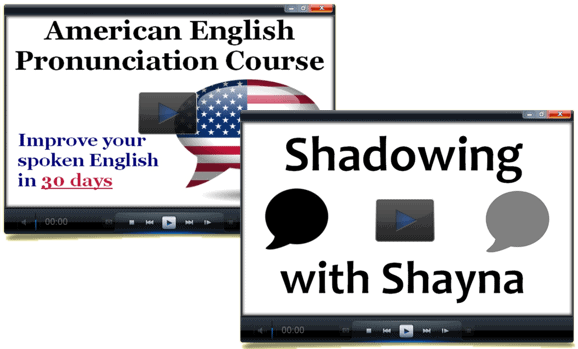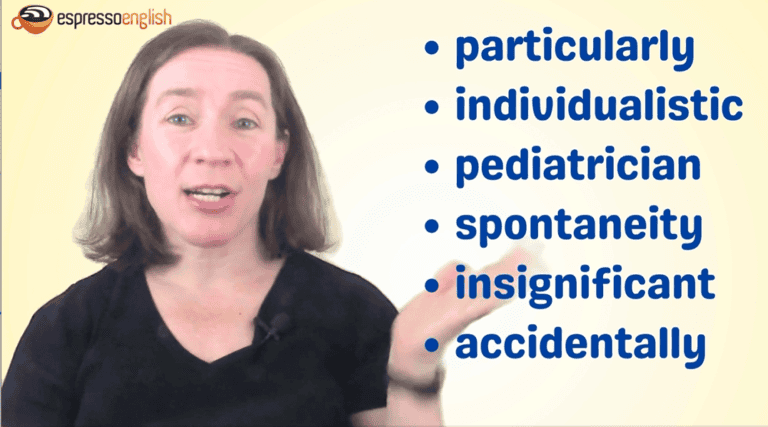
You might be thinking… why make a video about pronouncing CAN and CAN’T – that’s so easy and obvious!
But keep watching, because there are some pronunciation changes when native English speakers say these words fast. This lesson will help you understand can/can’t better when you HEAR them, and it will also help you SAY these words more naturally in sentences.
How to pronounce CAN’T
Let’s start with CAN’T. The main thing is that we don’t pronounce the T like “t.” We don’t usually say “can’T.” Instead, it sounds more like can’t – the end of the word just stops suddenly; we simply cut off the sound quickly, instead of pronouncing a clear “t.” This happens with a lot of English words ending in “t.” We say hat, get, sit, and not haT, geT, siT.
So if you’re expecting to hear a strong “t” sound at the end of can’t – you won’t. And this can be confusing – so how are you supposed to hear the difference between can and can’t, if we don’t pronounce the final T like “t”?
How to pronounce CAN
Here’s how you can do it – the word “can” is also pronounced differently in fast spoken English!
We usually don’t say can with a strong “a” sound. Instead, we say something like “kin” or “kn” – the word gets shortened, because the stress is usually on the main verb that comes after the word “can.”
Let me show you some examples to make it clearer:
- I can swim.
I kin swim. - You can call me anytime.
You kn call me anytime. - We can give you a ride.
We kn give you a ride.
See how the word “can” sounds more like “kin”? Because the stress is on the main verbs, swim, call, and give.
This pronunciation of “can” more like “kin” also happens in questions with “can.” Let’s look at some of these:
- Can you close the window?
Kinya close the window? - How can I help?
How kn I help? - Where can we buy tickets?
Where knwe buy tickets?
When you understand that “can” typically sounds like “kin” and “can’t” typically sounds like can’t, this will help you hear the difference.
Pronunciation Practice
Now let’s practice sentences where the only difference is can/can’t. Listen and repeat after me:
- I can understand.
- I can’t understand.
- He can dance very well.
- He can’t dance very well.
- They can leave early.
- They can’t leave early.
- Can we take pictures?
- Why can’t we take pictures?
These pronunciation differences between can and can’t are small details, and understanding them will help you hear the difference when you listen to someone speaking, as well as say these words more naturally in sentences.
If you want to practice your pronunciation to make it clearer, come check out my American English Pronunciation Course. I’ll take you through all the sounds of the language, and ask you to listen and repeat lots of words and sentences in order to help you improve.










